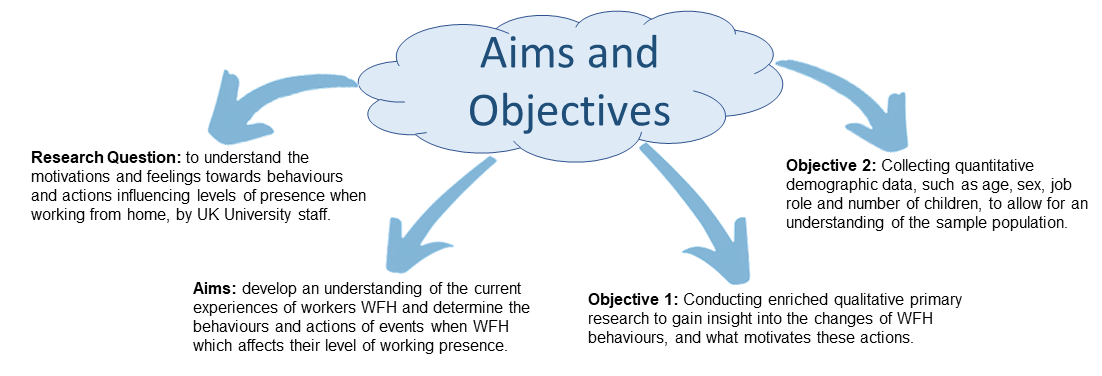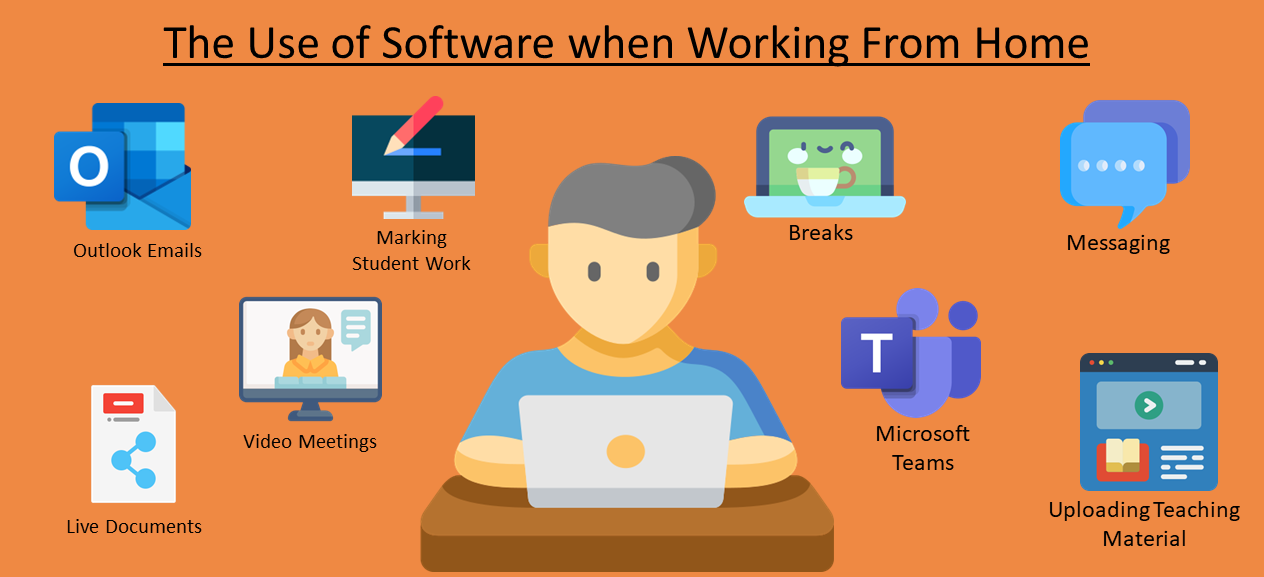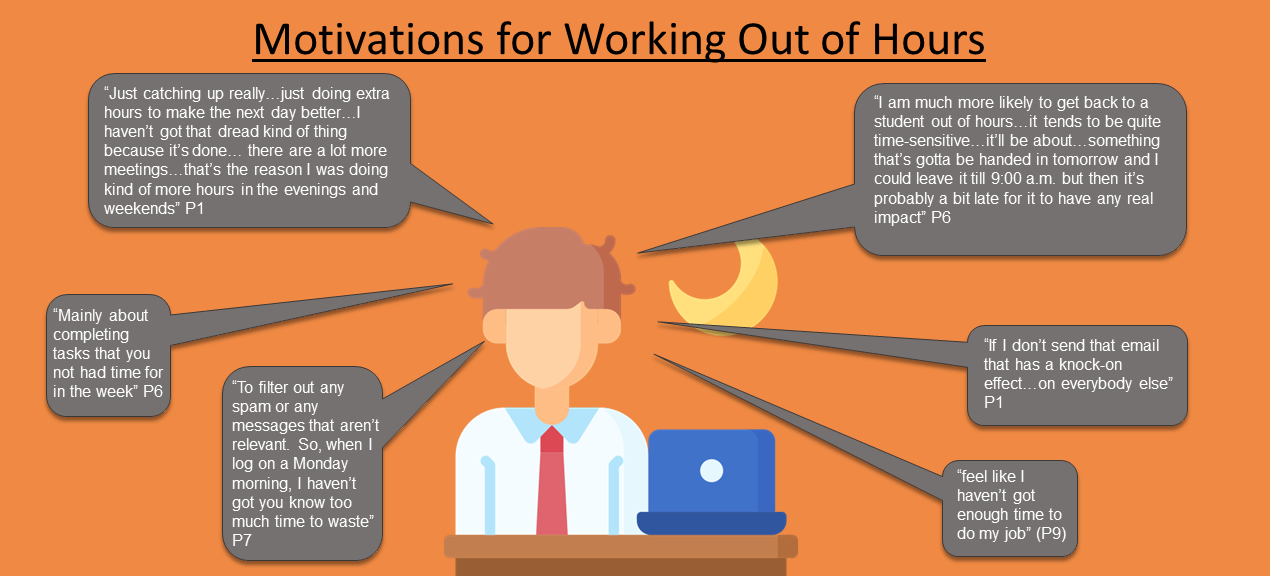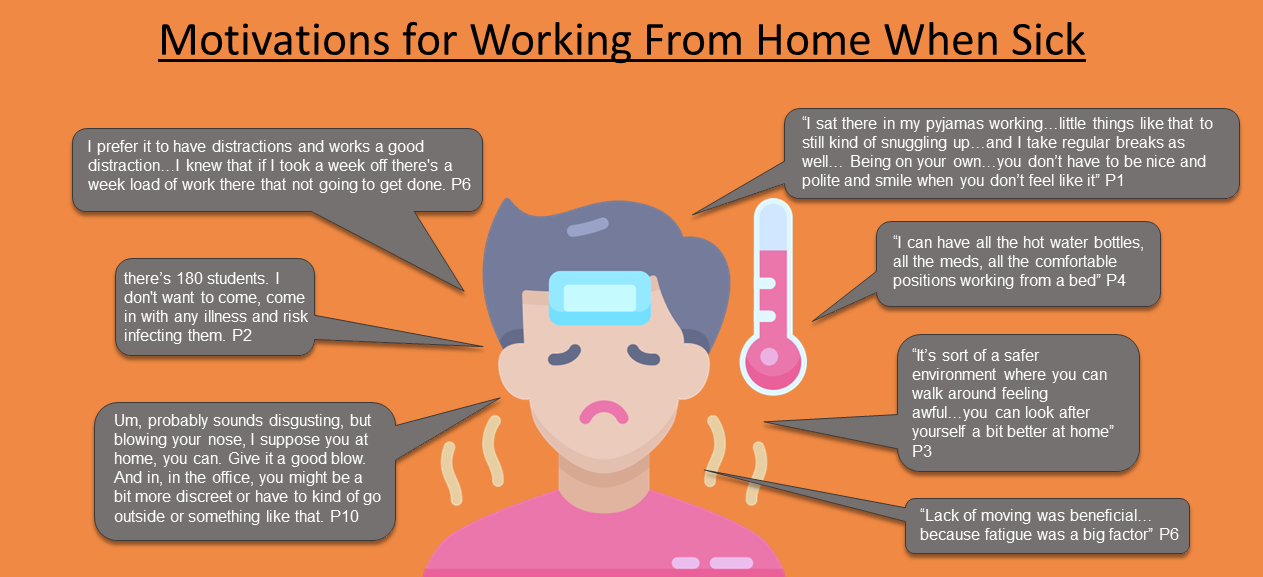I am a proactive designer who has specialised in the integration of human factors within defence and autonomous systems in the past. My strengths lie within the initial phases of user research, prototype development and testing to create systems and products that are tailored to accommodate the physical and mental needs of the target population.
Major project
Has Working from Home During the COVID-19 Pandemic Caused a Change in Work Behaviours and Attitudes of UK University Staff?
The Behaviours of University Staff when Working From Home
The Problem, Research Aims and Objectives
The COVID-19 pandemic which started in March 2020 forced staff at Universities to teach, perform admin duties and conduct research whilst working from home (WFH). This operational approach hasn’t been assessed concerning its impact on the employee’s personal and work lifestyles. Thus there is uncertainty regarding the effect this working structure has on the worker’s behaviours and attitudes.
This project aims to develop an understanding of the current experiences of workers WFH and determine the behaviours and actions of events when WFH which affects their level of working presence. The relevance of this study is to identify where problems and perceived hardships from University staff may lie, to make Universities aware of the challenges their employees are facing and to assist in new working behaviours to sustain a healthy balance between work and home life which satisfies the worker.
Thematic Coding Methodology
A series of in-person, semi-structured interviews were held with Staff from Keele and Loughborough University. Interviews were then transcribed and data was analysed via an eight-stage thematic analysis process, where coding to pre-determined themes developed into open coding for new themes, which finally linked to merging and recategorizing codes into the main four themes and overarching emotions colour-coded in the image. These enabled patterns and outliers present in the data to be acknowledged and allow for exploration within the codes and their relationships to each other.
Theme Findings - Movement into a Digital Working Environment
The accessibility of work and communication software such as Teams and Outlook when at home, has encouraged workers to check and send emails outside of regular working hours, so they can keep on top of their increased workloads since the pandemic and not cause delays in work affiliated with other colleagues and guidance to students with forthcoming deadlines. When in online video meetings, Lecturers find it rude when other members of the University such as students don’t turn their video on. Lecturers feel a disconnect because of this and these negative associations have only been established since WFH during the pandemic.
Theme Findings - The Success Rate of Working From Home Through Working Patterns
The increase in workloads during the pandemic has caused staff to work out of hours, to keep up with the expected work. The increase in online meetings generally takes up more time than meeting and having a quick chat in person. This reduces independent working time in a normal working day, which encourages the behaviour to work out of hours and reduces the time and frequency of breaks taken. Contrastingly, the increase in presence at an electronic screen due to online meetings has also caused more regular breaking. Motivations for this are to get away from the screen with concerns of eye fatigue.
Theme Findings - The Comforts of Home
The support of Loughborough University to allow workers to take office equipment home and give them money towards setting up an office environment, increased positive feelings of comfort. There was also an increase in WFH when sick due to this comfort and being able to look after themselves better, through the use of hot water bottles and not having to leave the office room to blow their nose when at home. Contrastingly, negative motivations for WFH when sick were due to high workloads and the lack of desire to catch up with work if they did fully take sick days and do no work.
Theme Findings - Engagement Between Academic and Family Personnel
A large presence of family conflict was created by WFH, Due to the high workloads and longer working hours in the evenings and weekends from University staff. This caused a reduced amount of time spent with families which created feelings of guilt and disappointment. Those who worked longer hours would consider this behaviour their personal choice with no pressure from the University. However, the need to work longer hours to have enough time to complete their job can be identified as an underlying pressure from the University, as there is an expectancy to stay on top of work. This can be seen as a lack of staff support in coping with these new higher workloads from the Universities.
Rebecca Hicks
Major project
Has Working from Home During the COVID-19 Pandemic Caused a Change in Work Behaviours and Attitudes of UK University Staff?
Awards
BSc - User Centred Design - First Class Honours - Loughborough University 2021
Diploma of Professional Studies - Loughborough University 2021
Airbnb x Adobe XD App Design Competition - International Finalist - 2020 - With two other Undergraduates, we designed an App which would allow family and friends to connect and share photos and trip information. I then volunteered from my group to present our idea to an audience of 1700+ people live. More information at: https://www.lboro.ac.uk/schools/design-creative-arts/whats-happening/news/2020/students-are-adobe-creative-jam-finalists/
LEAP Award - Passed - Loughborough University 2018 - Weekly training experience offered by Loughborough University where you are assessed on your leadership, public speaking and team communication skills.
Work Experience
BAE Systems Industrial Placement - Human Factors Engineer - June 2019 - July 2020
My previous experience at BAE Systems involved looking into the physical and cognitive limitations of simulation pilots and training assessors for the next fighter jet, Tempest, and the current fighter jet, Typhoon. This was accomplished by performing human trials using electroencephalography (EEG) caps and using models such as the NASA task-load index, to investigate the effectiveness of takeover performance from human to machine during different onsets of tasks. Additionally, I also helped design the new augmented reality Human Machine Interfaces (HMI) for Tempest. This included creating an HMI specification on interactive button states, text casing, layout and interaction feedback of the user.
BAE Systems Summer Internship - Human Factors Engineer - July 2021 - September 2021
I went back to BAE during the Summer and helped with the HMI design of the Typhoon simulation training systems. This included looking at British Standards and DEFSTANS, and efficiently dissecting the areas that needed to be focused on in the interface design and the physical ergonomic assessment of the training assessor's desk space. I enjoyed the research of documentation in this project and am keen to use my developed skills in the field of aerospace and defence.






